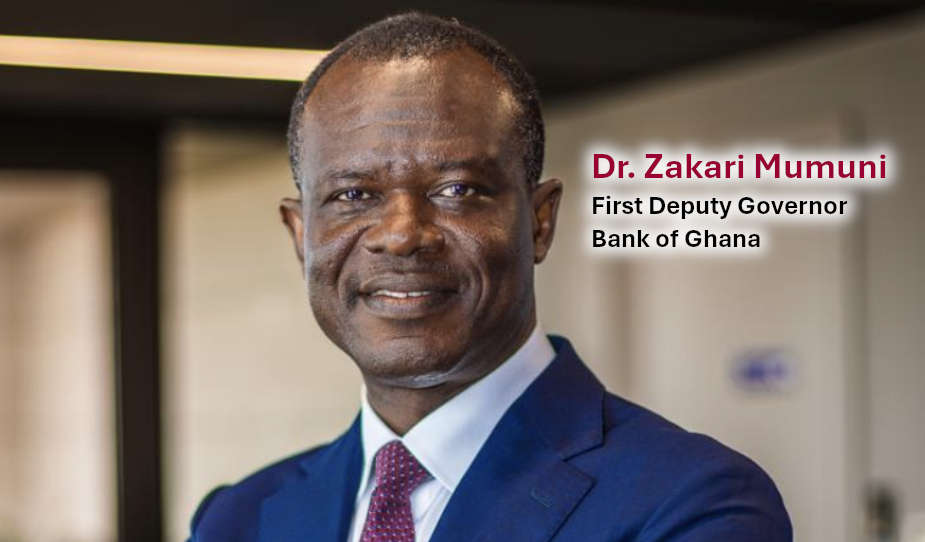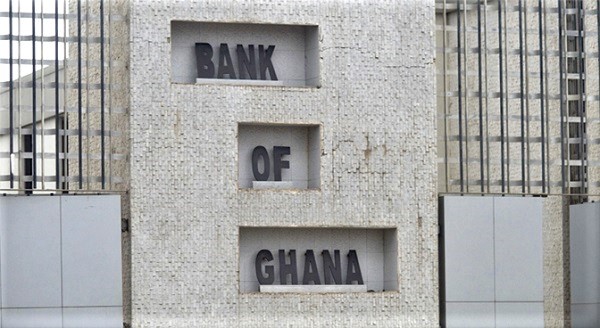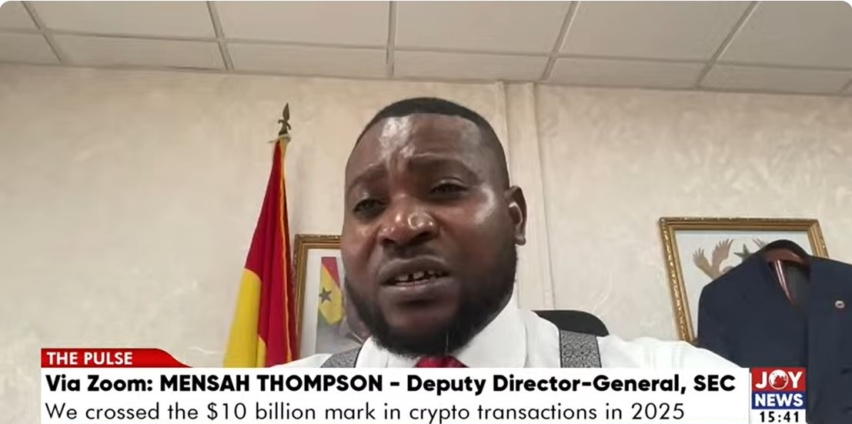Ghana's New Digital Rules Redefining African Fintech Lending

Yesterday, The Bank of Ghana opened applications for the country's new Digital Credit Directive, in what could be a pivot point that reorders the landscape of African fintech.
To the casual observer, this looks like a routine regulatory update, but to those in the know, Ghana is drawing a line in the sand: the days of irresponsible, unregulated digital lending are over.
The country wants innovation and it also wants that innovation on its own terms, terms placed solidly in the camps of control and consumer safety, not untrammeled growth. Ghana, which is often a quiet mover in West Africa is setting a new, strict playbook for the continent's digital credit market.
Digital Credit Services Providers are companies that use digital platforms and mobile technology to offer short-term or microloans to consumers and businesses without the need for traditional banking infrastructure
The directive, published on September 23, 2025, forms part of the regulator’s efforts to strengthen oversight of the country’s fast-expanding digital lending industry. According to the Bank, applications will be accepted through its Online Regulatory Analytics Surveillance System (ORASS) beginning yesterday, November 3, 2025.

The Unruly Boom and the Central Bank's Response
In the last five years, the digital lending industry in Ghana was in a state of chaotic, high-speed growth: hundreds of mobile credit applications popped up, offering students, market traders, and freelancers the promise of instant cash with no paperwork.
While this accessibility accompanied an actual need for quick access to working capital, it came with great costs. Most of these platforms operated deep in a regulatory gray area, setting off an explosion of predatory practices.
Reports began to flood public forums about sky-high interest rates, routine privacy violations, and aggressive debt collection tactics, including calling borrowers' contacts as a form of public shaming.
When the complaints reached critical mass, the Central Bank, which had earlier largely looked on from the sidelines, was forced to act. Ghana's fintech success story seemed to be imploding under the weight of its own ethical failures.
The Non-Negotiable Demands of the Directive
This is where the Digital Credit Directive comes in; the definitive answer from the Central Bank to that untamed growth. It clearly states the application of enforceable rules to every digital lender operating in the country, be they foreign or local.
These measures are meant to work as that important filter between genuine financial service providers and predatory opportunists.
Mandatory licensing: All digital lenders will be required to be licensed, hence anonymity of platforms is removed.
Rate and Term Transparency: The rule puts in place interest rate caps and requires that all loan terms be clearly disclosed to the consumer.
Data Restrictions: Stringent limits are imposed on how much personal data may be collected; lenders, importantly, can no longer demand broad access to a user's phone contacts.
Data Localization: This is an enhanced security measure; it's also a means of national control because all operational data has to be hosted in the country it operates in.
This is not an attempt to shut down innovation; rather, it's a move to give it a secure foundation. The Bank of Ghana is forcing the industry to place good practice over profit maximization.
Beyond financial capacity, the directive compels companies to submit comprehensive business plans, including five-year financial projections, product outlines, and details of ICT systems to be deployed.
Firms must also demonstrate robust measures against money laundering, fraud, and cybersecurity risks, supported by a Business Continuity and Disaster Recovery Plan.
The regulator stressed that the licensing regime is designed to ensure that only well-capitalised and professionally run firms participate in the digital credit market.
“Applicants are required to adequately abreast themselves with the Directive and comply accordingly,” the Bank stated.

Setting the Regulatory Pace
From Tunis to Lagos, Nairobi to Cape Town, one regulatory dilemma confronts governments across the African continent: how to nurture fintech's economic potential without allowing it to exploit the financially vulnerable.
While many countries like Nigeria have their Startup Act and Kenya its Digital Credit Providers Law, initial regulatory pushes are being closely followed by Ghana's holistic and uncompromising structure of the Directive.
This will go a long way in clearly spelling out a determined effort to sync consumer protection with market integrity. To regulators in neighboring West African states where informal and sometimes unscrupulous credit apps multiply rapidly, Accra's model has emerged as perhaps the most viable template for responsible sector governance.
The View from the Street and the Office
For entrepreneurs who run a micro-lending app in Accra, the regulations are an irritation that is a necessary evil and a natural filter. The platforms that were purely in it for quick money will disappear. The serious players will adapt, invest in compliance, and ultimately build a much stronger, more trustworthy system.
Meanwhile, on the streets, the reaction from ordinary citizens remains cautiously optimistic. Shop owners in the Madina market, frequent borrowers will finally rest easy. "They used to call my family, my contacts, if I was late by even one day," one remembers, referencing the pervasive harassment. "We need quick loans to buy stock, but we need it to be fair. We just want dignity."
The sentiment is the heart of what the Directive was assembled to achieve; that is, keeping essential financial access but without the exploitation element. The true test of Ghana's new playbook won't be how many licenses it issues, but rather how well it renews public confidence in the digital financial system.
You may also like...
Super Eagles Fury! Coach Eric Chelle Slammed Over Shocking $130K Salary Demand!
)
Super Eagles head coach Eric Chelle's demands for a $130,000 monthly salary and extensive benefits have ignited a major ...
Premier League Immortal! James Milner Shatters Appearance Record, Klopp Hails Legend!

Football icon James Milner has surpassed Gareth Barry's Premier League appearance record, making his 654th outing at age...
Starfleet Shockwave: Fans Missed Key Detail in 'Deep Space Nine' Icon's 'Starfleet Academy' Return!

Starfleet Academy's latest episode features the long-awaited return of Jake Sisko, honoring his legendary father, Captai...
Rhaenyra's Destiny: 'House of the Dragon' Hints at Shocking Game of Thrones Finale Twist!

The 'House of the Dragon' Season 3 teaser hints at a dark path for Rhaenyra, suggesting she may descend into madness. He...
Amidah Lateef Unveils Shocking Truth About Nigerian University Hostel Crisis!

Many university students are forced to live off-campus due to limited hostel spaces, facing daily commutes, financial bu...
African Development Soars: Eswatini Hails Ethiopia's Ambitious Mega Projects

The Kingdom of Eswatini has lauded Ethiopia's significant strides in large-scale development projects, particularly high...
West African Tensions Mount: Ghana Drags Togo to Arbitration Over Maritime Borders

Ghana has initiated international arbitration under UNCLOS to settle its long-standing maritime boundary dispute with To...
Indian AI Arena Ignites: Sarvam Unleashes Indus AI Chat App in Fierce Market Battle

Sarvam, an Indian AI startup, has launched its Indus chat app, powered by its 105-billion-parameter large language model...






